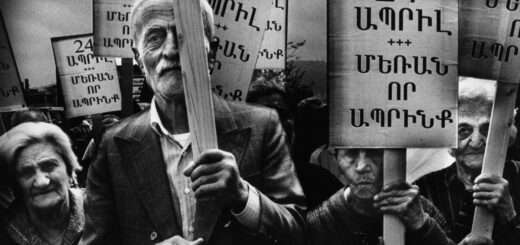The Ramadan TV Showdown Between Egypt and Turkey

Television series in Egypt and Turkey during the holy month of Ramadan have become a battleground over the consciousness in the Middle East
In 2020, the Egyptian Islamic advisory, judiciary and governmental body known as Dar al-Ifta warned the public against watching two Turkish series: “The Valley of the Wolves” and “Diriliş: Ertuğrul.” The explanation given was that they represented the narrative Turkish President Recep Tayyip Erdogan is trying to promote throughout the Muslim world, according to which the Ottoman state was an empire that ruled the entire Middle East before the British Mandate – and that its successors should regain control of the region.
Dar al-Ifta said in a statement that the two productions were designed to influence Egyptians and recruit supporters for Erdogan’s grand delusions. “Erdogan will not hesitate to revive his dream of bringing back the Ottoman tradition,” it said, adding that the Turkish president would “use all his powers,” including “political, religious, and even ‘soft powers’ such as cultural and artistic works” to obtain his goal. “He wants to influence all Arab countries, including Egypt, and strives to take back control,” it added.
Kamal Amer, head of the Egyptian Parliament’s Defense and National Security Committee, explained the logic behind the decision in an article published in Al-Monitor, a Middle East news site. “The Turkish television series are distorting historical facts and spreading misinformation,” he said. “Turkey is clearly biased in favor of the outlawed Muslim Brotherhood and is protecting its own interests. Our institutions, religious or otherwise, must look out for our best interests.”
“The Valley of the Wolves,” which aired in 2003 and lasted for four seasons, tells the story of a Turkish secret agent who embarks on missions around the world to protect his country’s interests, including the elimination of rival political leaders in the Middle East and the United States. The series’ radical messages continued to trouble Egypt’s Dar al-Ifta almost two decades after it ended.
“Diriliş: Ertuğrul,” which premiered in 2014 during the holy month of Ramadan and continued for five seasons, is a historical drama about Ertugrul Ghazi, the father of Osman I, who founded the Ottoman Empire in the 13th century. The series depicts him as a determined and moral warrior who unwittingly puts his tribe in danger, eventually agreeing to fight the sultan’s enemies in exchange for new land for his tribe.
The Egyptian critic Mohamed Habousha, one of the most prominent intellectual figures in the Arab world, said in an interview with Egypt’s Sada al-Balad channel, “The series completely reflects the perception of the Muslim Brotherhood.”
“It reflects the position that calls for the establishment of an Ottoman Muslim empire and presents theories that many Turkish people believe, such as that they are the ones who need to rule the Middle East, form a new political order, and fight evil in the entire world, including Israel. That’s why I’m against this series and everything it represents. It has no place in Egypt,” he said.
Habousha also published an extensive article in Egypt’s Al-Ahram daily under the title: “Erdogan creates his fake history with an exaggerated drama series.” According to Habousha, the problem is not only the series but Erdogan’s ambition to take over the Arab world through a cultural medium.
“Erdogan has been striving for years to create these huge projects that reshaped Turkey as a new Ottoman Empire and his goal is to fight against foreign powers and against Arab countries that oppose the Muslim Brotherhood. ‘Diriliş: Ertuğrul’ strengthens this narrative with the viewers.”
Egypt has invested many resources in recent years to fight Turkish influence. The month of Ramadan is a significant moment in this struggle because of the huge variety of TV series that are broadcast during it. Broadcast schedules in Arab countries conform to the time of breaking the fast, and the most important and talked about series are aired in the prime time, that is – right after the fast-breaking evening meal known as iftar.
Egyptian series expressed clear anti-Israeli messages for years. Turkish series were also hostile toward Israel. One such series was Iyilik, which aired in 2009 and showed Israeli soldiers shooting Palestinian women who raise their hands in surrender. The series sparked a diplomatic crisis in which Israel’s former Deputy Foreign Minister Danny Ayalon summoned the Turkish ambassador to Israel for a clarification meeting and sat him on a low chair. It seems, however, that recently both Israel and Turkey have been busier in the cultural struggle with one another.
In Ramadan of 2020, the Egyptian series “Al Ikhtiyar” (The Choice) was aired. It focused on the stories of Egyptian police officers and government officials who were killed between 2013 and 2020 in the clashes with Muslim Brotherhood activists in the Sinai Peninsula and emphasized their important role in preventing terror. The series is based on real events, including real-time pursuits of terror squads that murdered government officials. It became very popular and continued for two more seasons.
Turkey responded by producing another season of the very popular “Payitaht: Abdülhamid” about the reign of the 34th Ottoman sultan, Abdul Hamid II, and his efforts to preserve the Empire.
“The choice to depict the Sultan’s story is aimed at reviving the image of the Muslim hero who fights for his beliefs and his land, in the eyes of the Arab viewer,” said the London-based Al-Arab newspaper. “The chapters are organized in a sequence that forms an idealization of the Ottoman regime. This is Erdogan’s approach, and he has been trying for several years to spread this ideology in the Arab world,” it added.
The Egyptian series “Bitlou’ Al Rouh” (“Until the soul departs”) was aired during the Ramadan of 2022 and enjoyed large viewership. The series offers a critical look at the insides of the ISIS organization and urges viewers to consider the heavy prices paid by anyone who adopts its ideas. Its 15 episodes are based on true stories of people who joined the organization, including women who were kidnapped and eventually managed to escape.
The culture war between the two regional powers was not sudden. The moment that marked its beginning was the ousting of Mohammed Morsi, a member of the Muslim Brotherhood, who was elected Egyptian President following the so-called Tahrir Square revolution. In the summer of 2013, after only one year in office, Morsi was ousted by Abdel Fattah al-Sissi, who has been the Egyptian President ever since.
The Egyptian government, however, continues to be disturbed by Turkey’s policy, which, under Erdogan, backs radical organizations such as Hamas, that could bring about chaos in Egypt and the entire region.
The Muslim Brotherhood was outlawed immediately after Morsi’s ousting. This, however, was not enough for al-Sisi, and he clashed with countries that continued to sponsor the group – primarily Turkey and Qatar. Of course, Erdogan disapproved of these actions, and Turkey’s Ramadan productions are one arena where he decided to showcase his regional interests and intentions.
“From the point of view of the Arab states, these series aren’t only entertainment, but a Turkish propaganda medium and a Turkish means of influence as a regional power,” says Ayelet Levi, a researcher of Arab society and culture at the Forum for Regional Thinking.
“For the current Egyptian regime, the Ramadan series are an important platform for presenting its struggle against radical Islam groups such as ISIS and the Muslim Brotherhood, while they also glorify the efforts of Egypt’s army and security forces in fighting terrorist organizations,” she adds.
Syrian-Armenian journalist Sarkis Kasarjian, who specializes in Turkey, said in an interview with the Saudi TV channel Al Arabiya in 2021 that the success of the Turkish series had also surprised the Turkish government.
“Once he became president, Erdogan looked for a way to revive the Ottoman attitude against the legacy of Ataturk (the founding father of the Republic of Turkey and its first president),” he said.
“In the beginning, these series – which included pro-Ottoman messages – were aimed at the Turkish public. Their goal wasn’t a cultural conquest of the Arab world. But after this project succeeded in Turkey, Erdogan understood how much power these series have and their ability to influence the public, so he decided to air them in other Arab countries with translation into Arabic.”
Egypt has arrived ready for this Ramadan season as well. One of the most talked about Egyptian series this year is “Al Hashashin” which was produced by the government-affiliated Synergy Films company.
The 30-episode series presents the story of the Nizari Isma’ili order – one of the Ismaili Islamic schools that were established in Persia and Syria at the end of the 11th century. The plot revolves around Hasan-i Sabbah, a leader who founded an army and eliminated his political and religious rivals.
The series caused an uproar because the actors were allowed to speak in an Egyptian dialect and not in literary Arabic, as is customary in historical dramas in the Arab world. The main claim was that this was a political decision aimed at strengthening Egypt’s position in the Middle East at Turkey’s expense.
Among those who reacted to this decision was Turki Al-Sheikh, who chairs Saudi Arabia’s General Entertainment Authority, which participated in financing the series.
“The creators of the series have the right to choose the language that suits them, and the ancient Egyptian dialect is still understood throughout the Arab world,” Al-Sheikh wrote last week on X, formerly known as Twitter.
“When the Turkish produce series in their language, and when Western countries produce in their languages – it works. Literary Arabic does not attract the young. I love it, but others may prefer otherwise,” he said.
Al-Sheikh’s claims prove that Saudi Arabia is also Egypt’s partner in the fight against Turkish influence. Already in 2018, the Saudis decided to include Arab dramas in the kingdom’s broadcasting schedule instead of Turkish productions, and here again, the decision was made due to the deterioration of relations between the countries and Turkey’s support of the Muslim Brotherhood.







